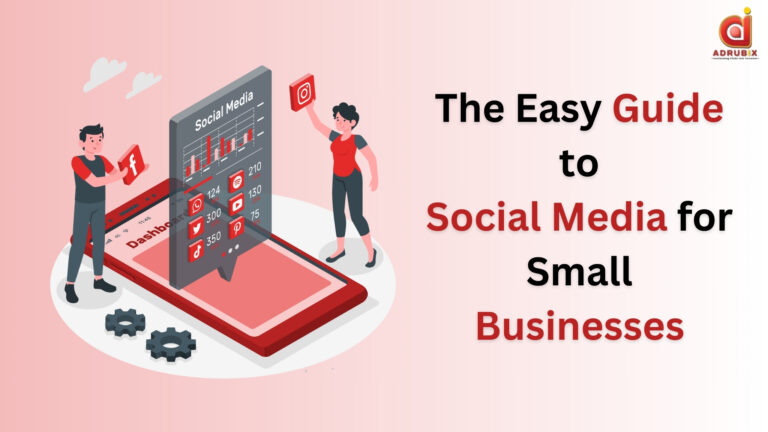Introduction:
In this Digital era, Social media is a must-have for any business, big or small. It’s a powerful and cost-effective tool to not only compete in the digital marketplace but also to build meaningful relationships with your target audience. In this blog, I’m going to give you the lowdown on how to get started with social media marketing for small businesses.
-
Set Clear Goals
Before you dive into your social media strategy, it’s important to define your goals. Whether you’re looking to increase sales, attract leads, or increase brand awareness, having clear goals will help guide your approach. This clarity allows you to identify the best social media platforms and adjust your strategy accordingly. By matching your actions to specific goals, you will optimize your efforts, allowing you to be more focused and effective in the ever-changing world of social media.
-
Know Your Target Audience
Understanding your target audience is crucial for successful social media marketing. Conduct market research to find out who your potential clients are and which social media sites they use most frequently. This will allow you to tailor your content and engage with your audience effectively.
-
Select the Appropriate Channels
With so many social media channels at your fingertips, it’s critical to concentrate on those that complement your target market and company objectives. Consider the demographics and features of each platform to make an informed decision. Facebook, Instagram, Twitter, LinkedIn, and Pinterest are popular choices for small businesses.
-
Create a Content Strategy
Maintaining consistency and organizing social media requires developing a content strategy. Determine the types of content you want to share, such as blog posts, videos, or infographics. To ensure a consistent and coherent brand message, organize your articles ahead of time by creating a content calendar.
-
Engage with Your Audience
Social media isn’t just about getting your message out there; it’s also about connecting with your target audience. Be quick to respond to comments, posts, and mentions. Connect with other companies and influencers within your industry to grow your reach and relationships.
-
Utilize Visual Content
Visual content is one of the most effective ways to engage users on social media platforms. Utilize high-quality photos, videos, and graphics to increase engagement in your posts. Even if you’re not an experienced graphic designer, you can use tools like Canva or Pixlr to create visually attractive content.
-
Monitor and analyze
Keep track of your social media analytics on a regular basis to get a better understanding of how your content is performing. Monitor engagement, conversion rates, and more analytics on your account. Use this information to improve your strategy and make better decisions in the future to boost your reach.
-
Be Consistent
The most important element of social media marketing is consistency. Posting the same content on all social media platforms in the same style and voice over and over again is a must. Not only does it help build brand awareness, but it also helps build trust with your followers. When you post content on regular basis, you’re creating a consistent and recognizable image that your audience can relate to. This makes it easier for them to connect with your small business and remember you. In today’s ever-evolving social media landscape, consistency and authenticity are the keys to building long-lasting relationships and positive impact on your target audience.
-
Stay Up to Date with Trends
Stay on top of the latest social media trends The world of social media is ever-evolving. New features and trends are popping up all the time, so it’s important to stay up to date. Try new formats like live videos, stories, etc. to keep your posts fresh and interesting.
-
Leverage User-Generated Content
Utilize User-generated content (UGC) If you’re running a small business, UGC is a great way to get your message out there. Get your customers to write and share content about your brand. Not only does this help build brand recognition, but it also helps build social proof and trustworthiness.
-
Engage with Influencers
Connect with influencers If you’re a small business owner, you’ve probably heard of influencer marketing. It’s a great way to reach a larger audience and build relationships with potential customers. To get started, you’ll need to find influencers who are active in your industry. Then, you can work with them to get your product or service out there. It is not important that you collaborate with macro influencers only; you can leverage micro-level influencers as well, as they have very niche and compelling audience that trusts them.
-
Invest in Social Media Management Tools
If you’re trying to manage multiple social media platforms at once, you’ll want to make sure you’re using the right tools. Hootsuite, Buffer, and other social media management tools can help you schedule and automate your social media posts, as well as provide you with analytics and reporting capabilities to track your social media efforts.
Conclusion:
In conclusion, following these steps and staying consistent with your social media strategy will allow you to strategically leverage the power of social media for your small business. This active engagement increases brand awareness, creates meaningful connections with your target audience, and ultimately accelerates business growth. It’s important to remember that success on social media isn’t just about your business size; it’s about the quality and relevance of the content you create. By implementing a thoughtful and well-thought-out social media plan, you’ll be able to break through the barriers and carve out an important presence in today’s competitive digital world. Don’t be afraid to re-evaluate and refine your social media strategy on a regular basis, as social media is a constantly evolving environment. Adapting to changing trends and changing audience preferences will go a long way toward sustaining success. Small businesses have the power to influence social platforms by creating authentic content that connects with your audience, creating long-lasting relationships, and ultimately thriving in the digital world.





